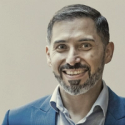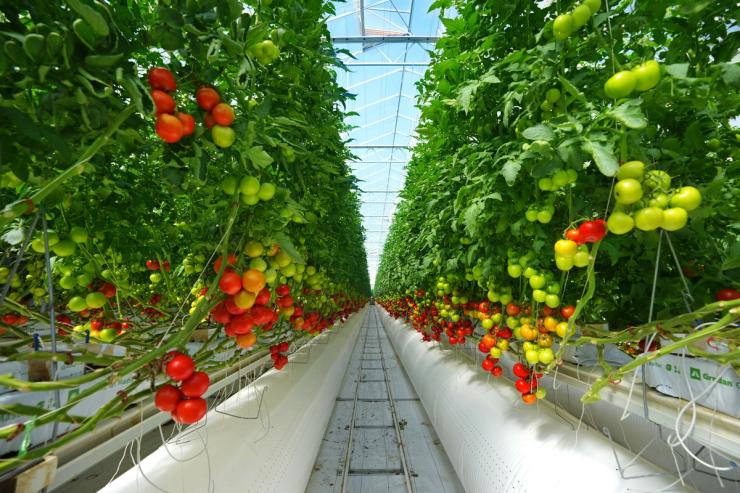The Scoop
Pure Harvest Smart Farms, a UAE-based agriculture tech firm, plans to raise at least $100 million as it expands into Singapore, Morocco, and Kuwait, and spins off its Saudi operation into an independent entity, the company’s CEO told Semafor.
While declining to disclose the valuation of the current round, Pure Harvest’s founder and Chief Executive Officer Sky Kurtz said the company has hired Rothschild & Co. to advise on the raise. Pure harvest has raised $287 million since 2017, and its existing farms “are profitable and growing,” according to Kurtz.
Gulf countries rely on imported food, and regional governments are becoming more stringent about regulating water use in traditional farming, banning some crops altogether. Supermarkets carry a wide range of fruits and vegetables — from affordable options grown in Jordan and Iran, to premium produce from Dutch greenhouses. Agriculture tech firms like Pure Harvest or the vertical farm business Bustanica that use less water are growing crops in the Gulf and pricing their products between these two extremes.
Pure Harvest plans to close this fundraising round by the end of the year, Kurtz said, and will immediately begin construction of a new farm in Morocco when the financing is secured. This will likely be the last farm the company itself builds, as it shifts to a more scalable “farming-as-a-service” to landowners while selling the produce under its own brand, Kurtz said. It’s also building farms in Saudi Arabia, Singapore, and Kuwait, and plans to maintain a portfolio of company-owned projects along with the service model in the future.
Backers of Pure Harvest’s previous rounds were Saudi Arabia’s Olayan family, the UK’s Metric Capital Partners, Franklin Tempelton, Shuaa Capital, and South Korea’s IMM Investment Corp. The company’s Saudi business is growing quickly, which is why Kurtz is creating a standalone business to focus on the kingdom and Bahrain.
“Our aspiration has always been to be a global brand, far beyond the UAE,” Kurtz said. “One of the world’s harshest environments is our laboratory. We proved our solution, and now we are scaling it.”
In this article:
Mohammed’s view
The Controlled Environment Agriculture sector has experienced a boom, bust, and a modest rebound over the past decade. The biggest question for investors is whether to value these companies as food growers or tech firms, and this debate remains unresolved. Building high-tech farms is capital-intensive and isn’t easily scalable. Its mantra could be: move at a natural pace and grow stuff.
Kurtz accepts this, and it seems that he’s steering the company to shed infrastructure assets and focus on building its brand, providing the tech, and taking care of sales, as a service to farmers. While this model hasn’t been tested yet, the brand building has been working. I can attest that my family has been a loyal customer for years, and the tomatoes especially are consistent, available year-round, and reasonably priced.
A major impediment facing startups and venture capital in the region is the lack of exits, a reality that Kurtz also acknowledged. “We’re getting long in the tooth,” he said. “We need to think about how we provide a path to liquidity for our investors.”
In addition to being acquired or eventually going public, Kurtz said another option is to sell the infrastructure they’ve built to investors interested in owning farms and industrial plants. While this leaseback model is novel to the region, it has been deployed elsewhere, he said.
Finally, there’s a debate whether these companies live up to the environmental claims. While water usage is significantly lower — up to 95% in some cases — than traditional farming, the energy required to cool and light the space, along with the construction of the facilities, adds to the carbon footprint.
Kurtz said comparing the carbon footprint is complex, weighing factors like air freight, energy usage to desalinate water, among others. He said it differs for each product. But, he noted, Pure Harvest supply chains are considerably shorter than international imports: Its farm in the UAE is around two hours by road to Dubai and Abu Dhabi.
Notable
- Industry news site AgFunderNews reports on the last decade of startups and investments in the CEA sector.
- A deep dive into the business of selling berries, by The Wall Street Journal.


